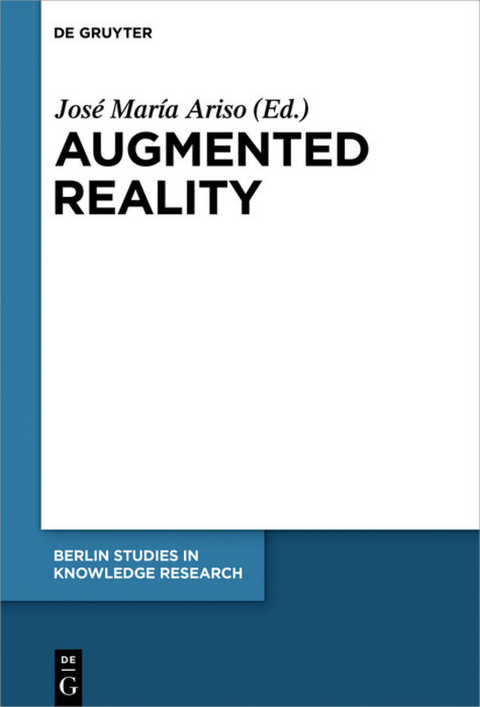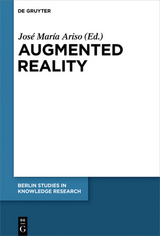Augmented Reality
Reflections on Its Contribution to Knowledge Formation
Seiten
The Berlin Studies in Knowledge Research (BSKR) series aims to foster systematic research into the variety of forms of knowledge as well as to uncover aspects of their underlying unity. The conception of the discipline of epistemology it seeks to promote is a generous-one which encompasses a study of the full variety of forms, practices and dynamics of knowledge, as well as their mutually interacting points of contact and their respective mechanisms of interpenetration. It seeks thereby to bring about a reorientation of the discipline of epistemology, undoing artificial restrictions in its scope and achieving a greater appreciation of the heterogeneity of different forms of knowledge. The series BSKR is associated with the Innovationszentrum Wissensforschung (IZW) / Center for Knowledge Research at the TU Berlin, Germany.
There is at present no publication specifically dedicated to analyzing the philosophical implications of augmented reality, especially regarding knowledge formation, which constitutes a fundamental trait of knowledge society. That is why this volume includes an analysis of the applications and implications of augmented reality. While applications cover diverse fields like psychopathology and education, implications concern issues as diverse as negative knowledge, group cognition, the internet of things, and ontological issues, among others. In this way, it is intended not only to generate answers, but also, to draw attention to new problems that arise with the diffusion of augmented reality. In order to contemplate these problems from diverse perspectives, the auhors are from a variety of fields - philosophy, computer sciencess, education, psychology, and many more. Accordingly, the volume offers varied and interesting contributions which are of interest to professionals from multiple disciplines.
There is at present no publication specifically dedicated to analyzing the philosophical implications of augmented reality, especially regarding knowledge formation, which constitutes a fundamental trait of knowledge society. That is why this volume includes an analysis of the applications and implications of augmented reality. While applications cover diverse fields like psychopathology and education, implications concern issues as diverse as negative knowledge, group cognition, the internet of things, and ontological issues, among others. In this way, it is intended not only to generate answers, but also, to draw attention to new problems that arise with the diffusion of augmented reality. In order to contemplate these problems from diverse perspectives, the auhors are from a variety of fields - philosophy, computer sciencess, education, psychology, and many more. Accordingly, the volume offers varied and interesting contributions which are of interest to professionals from multiple disciplines.
José María Ariso, International University of La Rioja, Madrid, Spain.
| Erscheinungsdatum | 14.04.2017 |
|---|---|
| Reihe/Serie | Berlin Studies in Knowledge Research ; 11 |
| Zusatzinfo | b/w line drawings |
| Verlagsort | Berlin/Boston |
| Sprache | englisch |
| Maße | 155 x 230 mm |
| Gewicht | 610 g |
| Themenwelt | Geisteswissenschaften ► Philosophie ► Erkenntnistheorie / Wissenschaftstheorie |
| Schlagworte | Internet der Dinge • internet of things • knowledge formation • Knowledge formation, knowledge society, internet o • Knowledge formation, knowledge society, internet of things • Knowledge Society • Wissensgesellschaft |
| ISBN-10 | 3-11-049700-X / 311049700X |
| ISBN-13 | 978-3-11-049700-7 / 9783110497007 |
| Zustand | Neuware |
| Haben Sie eine Frage zum Produkt? |
Mehr entdecken
aus dem Bereich
aus dem Bereich
die Grundlegung der modernen Philosophie
Buch | Softcover (2023)
C.H.Beck (Verlag)
CHF 25,20
Buch | Softcover (2023)
Reclam, Philipp (Verlag)
CHF 9,80



![Was heißt Denken?. Vorlesung Wintersemester 1951/52. [Was bedeutet das alles?] - Martin Heidegger](/media/113619842)
